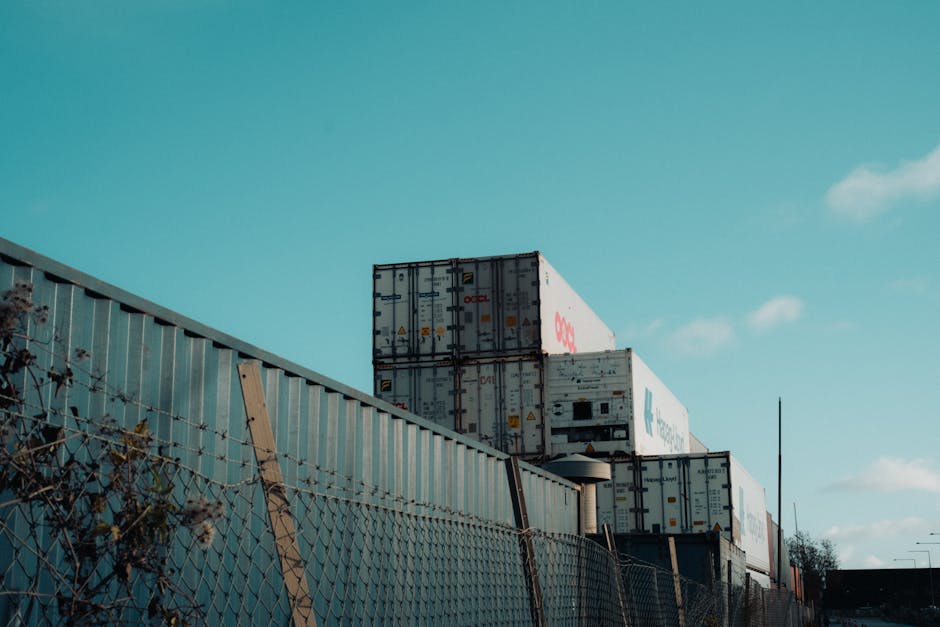Navigating the Challenges of Global Supply Chain Management
Managing supply chains on a global scale comes with a unique set of complexities. From sourcing raw materials across multiple countries to addressing varying regulations and mitigating risks, businesses face significant challenges at every stage. These complexities are further compounded by external factors like geopolitical tensions, natural disasters, and the increasing demand for sustainability in operations. Understanding these dynamics is crucial for organizations aiming to maintain efficiency while staying competitive in the market.

Understanding the Core Challenges
One of the most pressing challenges in global supply chain management is dealing with fluctuating costs. Factors such as currency exchange rates, fuel prices, and tariffs can significantly impact expenses. For instance, a sudden increase in oil prices can drive up transportation costs, affecting the overall profitability of products.
Another obstacle lies in compliance with international trade regulations. Countries have distinct laws regarding imports, exports, labor standards, and environmental policies. Businesses must stay updated on these regulations to avoid penalties and maintain smooth operations.
Additionally, supply chain visibility remains a major issue. Tracking goods across various stages, especially when they pass through multiple intermediaries, can be difficult. This lack of transparency often leads to delays, misplaced shipments, or even counterfeit goods entering the supply chain.
The Role of Technology in Streamlining Processes
Technology has emerged as a critical enabler in overcoming supply chain challenges. Tools like Enterprise Resource Planning (ERP) systems allow businesses to integrate various functions such as inventory management, procurement, and logistics into a single platform. This integration enhances coordination and reduces redundancies.
Blockchain technology is gaining traction for its ability to improve transparency and traceability. By creating an immutable record of transactions, blockchain ensures that all stakeholders have access to accurate and real-time data. For example, Walmart has successfully implemented blockchain to trace food items back to their source within seconds.
Artificial intelligence (AI) and machine learning are also being used for predictive analytics. These technologies help businesses forecast demand more accurately and identify potential disruptions before they occur.
Impact of Geopolitical Tensions
Geopolitical tensions have a profound effect on global supply chains. Trade wars, sanctions, and diplomatic disputes can lead to sudden changes in tariffs or restrictions on certain goods. For instance, the US-China trade war resulted in increased tariffs on billions of dollars' worth of goods, forcing companies to rethink their sourcing strategies.
Similarly, political instability in regions critical to global supply chains (such as the Middle East for oil or Southeast Asia for electronics manufacturing) can disrupt operations. Businesses need to diversify their supplier base and build contingency plans to mitigate these risks.
The Push for Sustainability
Consumer demand for sustainable practices is reshaping how businesses approach supply chain management. Companies are under pressure to reduce their carbon footprint, ensure ethical labor practices, and minimize waste throughout their operations.
Some businesses have responded by adopting circular supply chains where products are designed for reuse or recycling at the end of their lifecycle. Others are investing in renewable energy sources for manufacturing and logistics. For example, Apple has committed to making its entire supply chain carbon-neutral by 2030.
- Using electric vehicles for last-mile delivery
- Sourcing materials from certified sustainable suppliers
- Implementing energy-efficient practices in warehouses
The Importance of Resilience
The COVID-19 pandemic highlighted the need for resilience in global supply chains. Lockdowns and travel restrictions disrupted production and transportation worldwide, leading to shortages of essential goods such as medical supplies and semiconductors.
To build resilience, businesses are adopting strategies like nearshoring (bringing production closer to home) and maintaining safety stock inventories. They are also leveraging digital twins (virtual replicas of physical assets) to simulate different scenarios and optimize decision-making.
Cultural Considerations in Global Operations
Operating across multiple countries means dealing with diverse cultural norms and business practices. Misunderstandings arising from cultural differences can lead to conflicts or inefficiencies.
For example, negotiation styles vary widely; while Western cultures may prioritize direct communication and quick decision-making, Asian cultures often emphasize relationship-building before discussing business terms. Companies must invest in cross-cultural training programs to bridge these gaps effectively.
The complexities of managing global supply chains require businesses to adopt innovative solutions while remaining agile enough to adapt to changing circumstances. From leveraging advanced technologies like AI and blockchain to diversifying supplier bases and embracing sustainability initiatives, organizations must address these challenges proactively.
Success lies in balancing cost efficiency with ethical practices and resilience planning. By doing so, companies not only ensure uninterrupted operations but also build trust with consumers who increasingly value transparency and responsibility in business practices.
This article was generated by AI